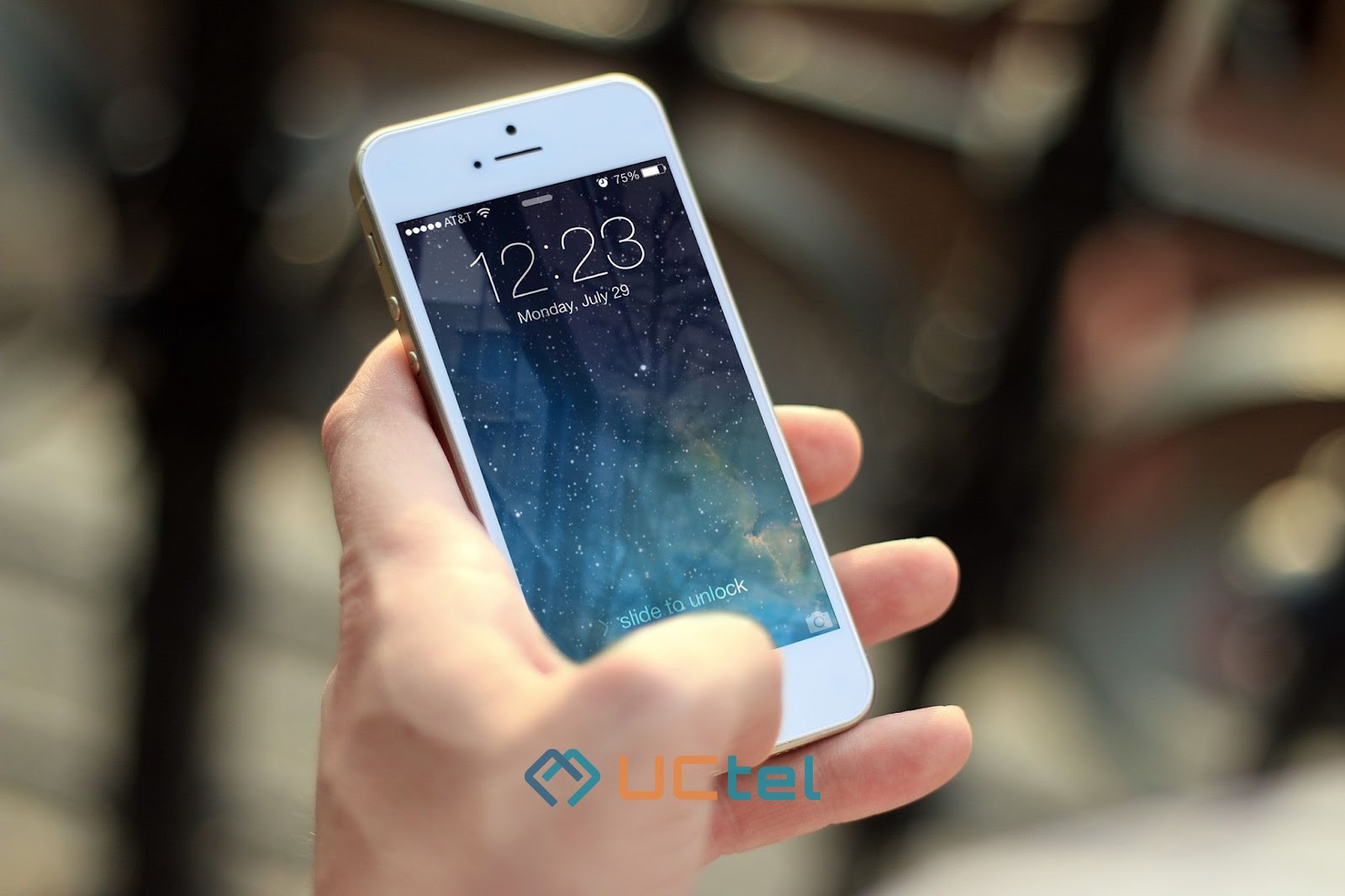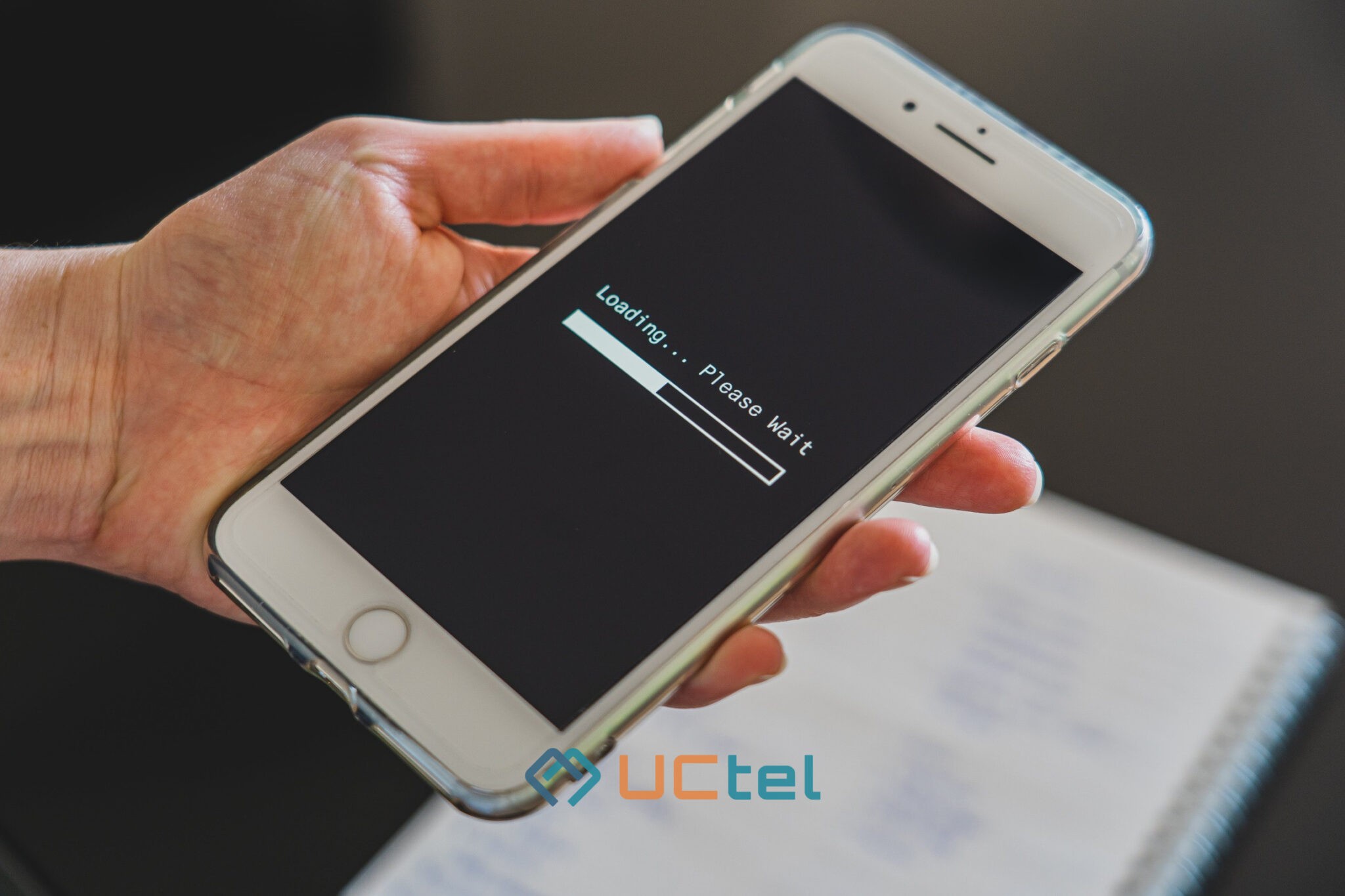LTE vs 4G: Understanding the Difference Between LTE And 4G

Table of contents
In an era dominated by digital connectivity, it’s vital to grasp the nuances of the technologies that power our wireless communication. Despite 5G networks becoming more available, LTE and 4G are still the most commonly encountered terms in mobile technology. While these networks are often used interchangeably, does LTE mean 4G? These technologies are not the same, and understanding how they compare is particularly important for industries relying on fast, reliable, and efficient networks for their operations.
At UCtel, we specialise in delivering cutting-edge signal booster solutions to ensure smooth and consistent mobile connectivity for businesses across the UK. Knowing mobile tech inside out, we’ll break down the difference between 4G and LTE and explain how they impact everyday connectivity.
What is 4G?
4G stands for Fourth Generation. It is a specification - a set of standards laid out by the International Telecommunication Union (ITU-R). 4G is not as a specific technology itself, but more of a performance target that networks had to reach. Though unattainable at that time, the new metric was meant to inspire developers to deliver better technology.
Key Features of 4G
The target set in the 4G specification was primarily to deliver high speed data:
- High-speed data transfer: Download speeds of up to 100 Mbps in motion (such as when travelling in a car or train) and up to 1 Gbps in stationary environments make it possible to stream HD videos, play online games, and download large files without lag.
- IP-based communication: 4G uses an all-IP (Internet Protocol) framework to transmit voice, video, and messaging services as data, which leads to better call quality.
- Seamless connectivity: Designed for uninterrupted Internet access, 4G networks are ideal for applications like real-time video conferencing, GPS navigation, and IoT (Internet of Things) devices.
- Enhanced capacity: With a greater bandwidth, 4G can support more devices simultaneously without compromising speed or reliability.
Technology Behind 4G
What made 4G stand out from previous technology was the shift from the older 3G radio technologies to advanced technologies such as Orthogonal Frequency Division Multiplexing (OFDM) and Multiple Input Multiple Output (MIMO). This enabled far higher data transfer rates, reduced interference, and greater network efficiency, thus providing access to a broader range of services such as gaming, video, mobile commerce and social media.
Additionally, 4G operates on a wide range of frequency bands, allowing it to adapt to different regional regulations and requirements. This ensures consistent performance regardless of the location. Meanwhile, in distant areas and locations with poor coverage or connection speeds, users can rely on signal boosters for improved connectivity.
At UCtel, we deploy advanced CEL-FI signal boosters that are Ofcom-compliant and compatible with all UK networks. So, feel free to contact us for a custom-tailored 4G signal booster solution to bring mobile connectivity in your office, commercial space, or large building to a new level.
Curious about the innovation of 5G and wonder if 4G is still relevant and actively used in the UK? Check our article “When will 4G be phased out?” to find out.
What is LTE?
LTE, or Long-Term Evolution, is a wireless communication standard that represented a significant advancement in mobile technology and performance compared to 3G. Often referred to as a "bridge" between 3G and 4G, LTE was designed to enhance mobile connectivity and improve network efficiency but initially, as it did not meet the target set in the 4G specification, it was not technically 4G.
LTE Characteristics
LTE is one of the most widely deployed mobile network standards, and billions of users worldwide benefit from its capabilities.
- Offering download speeds of up to 100 Mbps and upload speeds of up to 50 Mbps under optimal conditions, LTE significantly outpaces 3G but does not achieve the 4G standard.
- LTE minimises the delay in data transmission, making it suitable for 4G applications requiring real-time responses.
- LTE uses an IP-based infrastructure.
- LTE’s architecture is modular and scalable to match higher data demands as the tech evolves.
How LTE Relates to 4G
Are 4G and LTE the same? Yes and No. LTE was introduced to address the limitations of 3G networks, such as slower data transfer rates and higher latency. Though LTE originally also fell short of the strict technical requirements set by ITU-R for true 4G standards, it delivered a better experience for the users and it was agreed that mobile networks could advertise 4G without having the technology available.
LTE Advanced: Its Functions and Role
The term '4G LTE' often misleads consumers into believing they are using a true 4G network. Technically, standard LTE does not meet the original 4G benchmarks, yet it is widely labeled as such. The landscape is further complicated by the emergence of LTE-A (Long-Term Evolution Advanced) also displayed as LTE+, creating a confusing mix of terminologies.
What Is LTE-A?
LTE-A builds upon the core LTE framework, introducing advanced technologies to overcome the limitations of its predecessor. It achieves faster speeds, better spectrum utilisation, and improved network performance. Key upgrades from LTE include:
- Carrier aggregation: Сombines multiple frequency bands into a single channel to increase the available bandwidth for faster data transfer rates and greater capacity.
- Advanced MIMO tech: Boosts throughput and signal quality.
- Relay nodes: Act as small base stations to extend coverage in areas with weak signals.
- HetNets (Heterogeneous Networks) integrate small cells with traditional macro cells to improve network coverage and capacity.
- Higher spectral efficiency: Сan transmit more data using the same amount of spectrum.
LTE-A Impact
The closest to the 4G standard, LTE-A not only bridges the gap to true 4G but also sets the stage for the transition to 5G. Many of the LTE-A technologies, such as massive MIMO and carrier aggregation, are foundational to 5G. As such, LTE-A is a critical stepping stone in the evolution of mobile networks, ensuring users experience the benefits of cutting-edge connectivity even before 5G becomes ubiquitous.
Does the Distinction Matter?
Understanding the distinction between LTE and 4G is not essential for individual consumers and businesses as you can only access what is available from the carriers. What is potentially more interesting is the blurring of technical specification and marketing terms, something that has continued into the even more complicated world of 5G.
What is important to be aware of with LTE and 4G?
One key area where LTE and 4G differs from 3G is that it is an IP-based infrastructure and therefore there are two important metrics to consider:
Signal Strength
Signal Strength (measured in dBm) indicates how strong the signal is from the tower. While essential, good signal strength alone does not guarantee a usable connection on LTE.
Data Capacity (Throughput/Speed)
Since the network is IP-based, the signal must be of sufficient quality and must have sufficient throughput to transport data packets reliably. This is often overlooked; even with strong signal bars, a congested or slow connection can prevent voice traffic (VoLTE) from functioning correctly.
Final Thoughts
In the end, the network technologies continue to coexist and are available to people across the world. 2G, 3G (being phased out in many countries), LTE, and LTE-A are all accessible with the right device and location. With the rising presence of 5G, this technology is gaining importance as its performance can supersede the deliverables of previous networks.
If you experience poor performance from your mobile network on any technology, you can always opt for a mobile signal booster to improve the quality of your mobile connection in your building. Get in touch with the professionals from UCtel to learn more about how to improve mobile connectivity.






